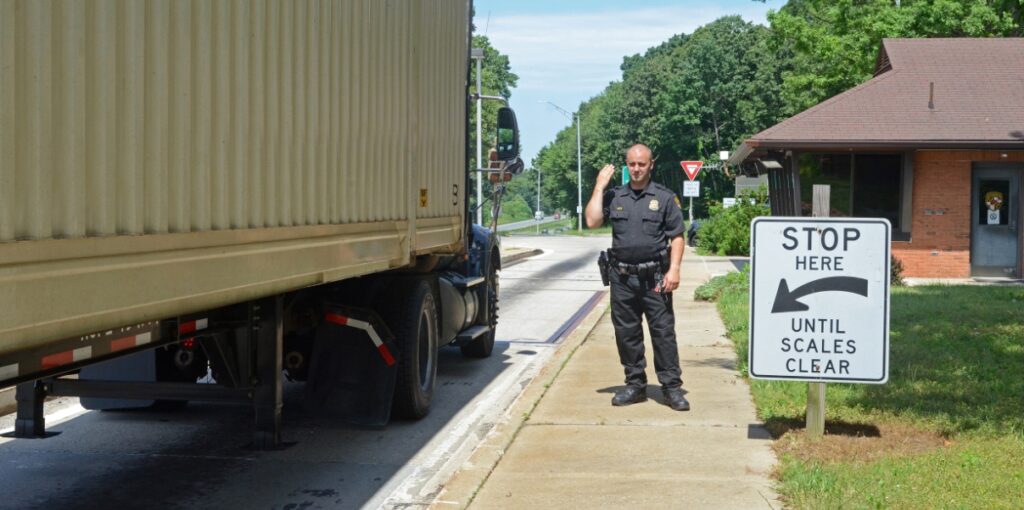UPDATED: May 8, 2018.
If you’re an owner-operator who’s leased on with a carrier, you’ve probably toyed with the idea of getting your own trucking authority. While there’s a lot less financial risk when you’re leased on, many drivers want the chance to earn more money and run independently.
It takes about 5 to 7 weeks to complete your authority. There are a lot of upfront costs associated with getting your operating authority, not to mention the maze of regulations. To help you decide whether or not to take the plunge, here’s a quick rundown of the requirements to start your own trucking company.
Need assistance getting your authority? DAT Authority can handle the paperwork for you.
What is Operating Authority?
Any for-hire carrier over 10,000 GVW who will be crossing state lines is required to have motor carrier authority from the U.S. Department of Transportation (USDOT). You’re also required to have an MC number, issued by the Federal Motor Carrier Safety Administration (FMCSA), which allows you to transport regulated commodities.

Before You File
You need to decide on a few things before you start filling out applications:
- Business name – You’ll need to choose a name for your company that’s not already in use.
- Business type – Get with your accountant to decide how your business should be organized: sole proprietorship, partnership, LLC, or corporation. Each comes with a different level of liability, and the taxes for each vary based on the state you’re in.
- Freight – What are you going to haul? Who are your future customers? If you don’t already have customers, you can search for available loads on a load board.
Proof of Insurance
Before the FMCSA approves your authority, you’ll need to submit proof of liability insurance. This is one of the biggest obstacles for owner-operators looking into getting their own authority, since you’re now taking on the liability costs that the carrier you were leased on with was paying for. All carriers are required to have a minimum of $750,000 to $1 million in liability insurance for general freight or $3-5 million for hazmat. You will also have to cover $100,000 in cargo insurance.
Insurance premiums will vary based on your driving record, the state you live in, and the states you plan to do business in. New carriers are often charged a higher premium, with the price typically dropping once the business is more firmly established.
Other Requirements
But wait, there’s more:
- Process agents – FMCSA requires you to have a process agent in every state you do business in. This is the entity that would get served papers if you had legal trouble in a state other than the one your business is based in. You file this with Form BOC-3.
- Heavy Highway Vehicle Use Tax (HVUT) – Any rig weighing at least 55,000 lbs has to pay HVUT, which is $100 plus an extra $22 for every 1,000 lbs the rig weighs over 55,000. This is filed with IRS Form 2290.
- Unified Carrier Registration (UCR) – This is filed with the state you’re based in, and the fee is based on the number of trucks in your fleet (power only). If you have 1 or 2 trucks, the fee is $72. Fleets of 3-5 trucks pay $209, and it keeps going up from there.
- International Registration Plan (IRP) – Also known as your apportioned base plate or cab card, which is filed with your state. Beginning in 2015, the IRP began full reciprocity, which means all carriers will be apportioned for all of the Lower 48 states and the 10 Canadian provinces. These fees will be between $1,400 and $2,400 for the first year of registration.
- IFTA – There’s a nominal fee for getting set up, based on your state ($0-$10).
- Other state regulations – Some states require weight distance permits when traveling through them (NY, NM, and KY). Oregon requires a permit and a bond. Some states also require intrastate authority.
- Drug and alcohol testing – Your new company must enroll in a drug and alcohol testing program, and anyone in the company holding a CDL must pass a screening.
DOT New Entrant Audit
Once you clear all these hurdles, you’ll be enrolled in the DOT New Entrant Program. Within your first 18 months of business, you’ll receive an audit that will focus on:
- Driver qualifications
- Driver logs
- Maintenance programs
- Accident register
- Driver qualification files
- Drug and alcohol policies
Sound like a lot of hassle? DAT Authority can take care of all the paperwork, including all federal fees, or we can help you during any part of the process.


